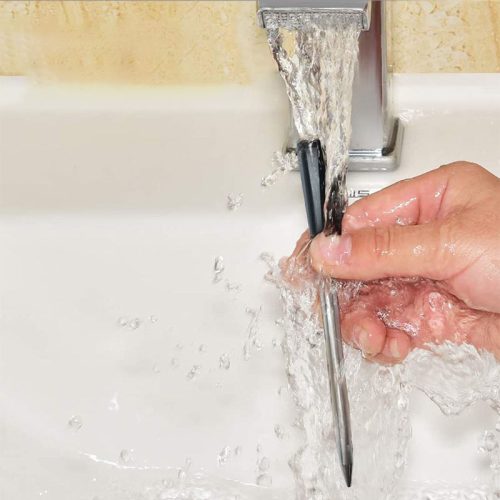Selecting the right hygrometer depends on your specific needs, preferences, and the environment you want to monitor. Here are some factors to consider when choosing a hygrometer:
- Accuracy and Precision: Look for a hygrometer that provides accurate and precise readings. Digital hygrometers are often more accurate than analog ones, but ensure the accuracy is within an acceptable range for your requirements.
- Type of Hygrometer: Different types include digital, analog, capacitive, psychrometric, etc. Choose one that suits your preferences and the intended application. For general indoor use, digital hygrometers are commonly preferred for their ease of use and accuracy.
- Display and Ease of Reading: Consider the display type and size. A clear and easy-to-read display is important for quick and accurate readings. Some digital hygrometers come with backlighting or larger screens for better visibility.
- Range and Calibration: Check the humidity range the hygrometer covers. Ensure it encompasses the range of humidity levels you expect in the environment you plan to monitor. Calibration options are also beneficial for maintaining accuracy over time.
- Additional Features: Some hygrometers come with additional features like temperature readings, data logging, alarms for high or low humidity levels, or connectivity to smartphones for remote monitoring. Choose based on the features that align with your needs.
- Placement and Size: Consider the size and design of the hygrometer. Make sure it fits well in the intended space and is easy to place where you need to monitor humidity levels.
- Power Source: Determine if the hygrometer operates on batteries or needs an external power source. Battery-powered hygrometers offer more flexibility in placement but require occasional battery changes.
- Price and Brand: Compare prices among different brands while considering quality and features. Opt for reputable brands known for producing reliable hygrometers.
- Reviews and Recommendations: Read reviews and seek recommendations from users or experts to get an idea about the performance and reliability of the hygrometer you’re considering.
- Intended Use: Consider the environment where you’ll use the hygrometer. For example, if it’s for outdoor use, ensure the hygrometer is designed to withstand outdoor conditions.
Ultimately, choosing the right hygrometer involves finding a balance between accuracy, features, usability, and cost that aligns with your specific needs and preferences for monitoring humidity levels.


